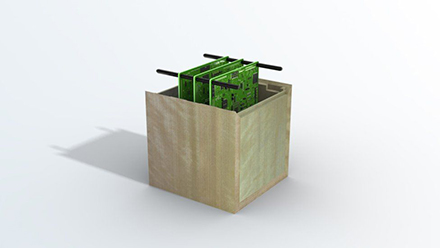Sumitomo Forestry and Kyoto University have joined forces to develop what they hope will be the world’s first satellites made out of wood by 2023. Sources: BBC News, SYFY Wire, Timberbiz
“We are very concerned with the fact that all the satellites which re-enter the Earth’s atmosphere burn and create tiny alumina particles which will float in the upper atmosphere for many years,” Takao Doi, a professor at Kyoto University and Japanese astronaut said.
“Eventually it will affect the environment of the Earth.
“The next stage will be developing the engineering model of the satellite, then we will manufacture the flight model.”
As an astronaut he visited the International Space Station in March 2008.
Sumitomo Forestry, part of the Sumitomo Group, which was founded more than 400 years ago, said it would work on developing wooden materials highly resistant to temperature changes and sunlight.
By manufacturing wooden satellite housings, the plan would be for them to simply incinerate and vanish in a blaze of glory when passing back through Earth’s atmosphere if they ever do happen to de-orbit.
At this point the ambitious program is still in a conceptual phase with scientists exploring which varieties of wood might endure the harsh conditions of space, which include violent temperature fluctuations and radiation bombardment.
The team’s preliminary investigation into the feasibility of their invention is being heavily guarded and their intended methods are secret.
Experts have warned of the increasing threat of space junk falling to Earth, as more spacecraft and satellites are launched.
Satellites are increasingly being used for communication, television, navigation and weather forecasting. Space experts and researchers have been investigating different options to remove and reduce the space junk.
There are nearly 6000 satellites circling Earth, according to the World Economic Forum (WEF). About 60% of them are defunct (space junk).
Research firm Euroconsult estimates that 990 satellites will be launched every year this decade, which means that by 2028, there could be 15,000 satellites in orbit.








